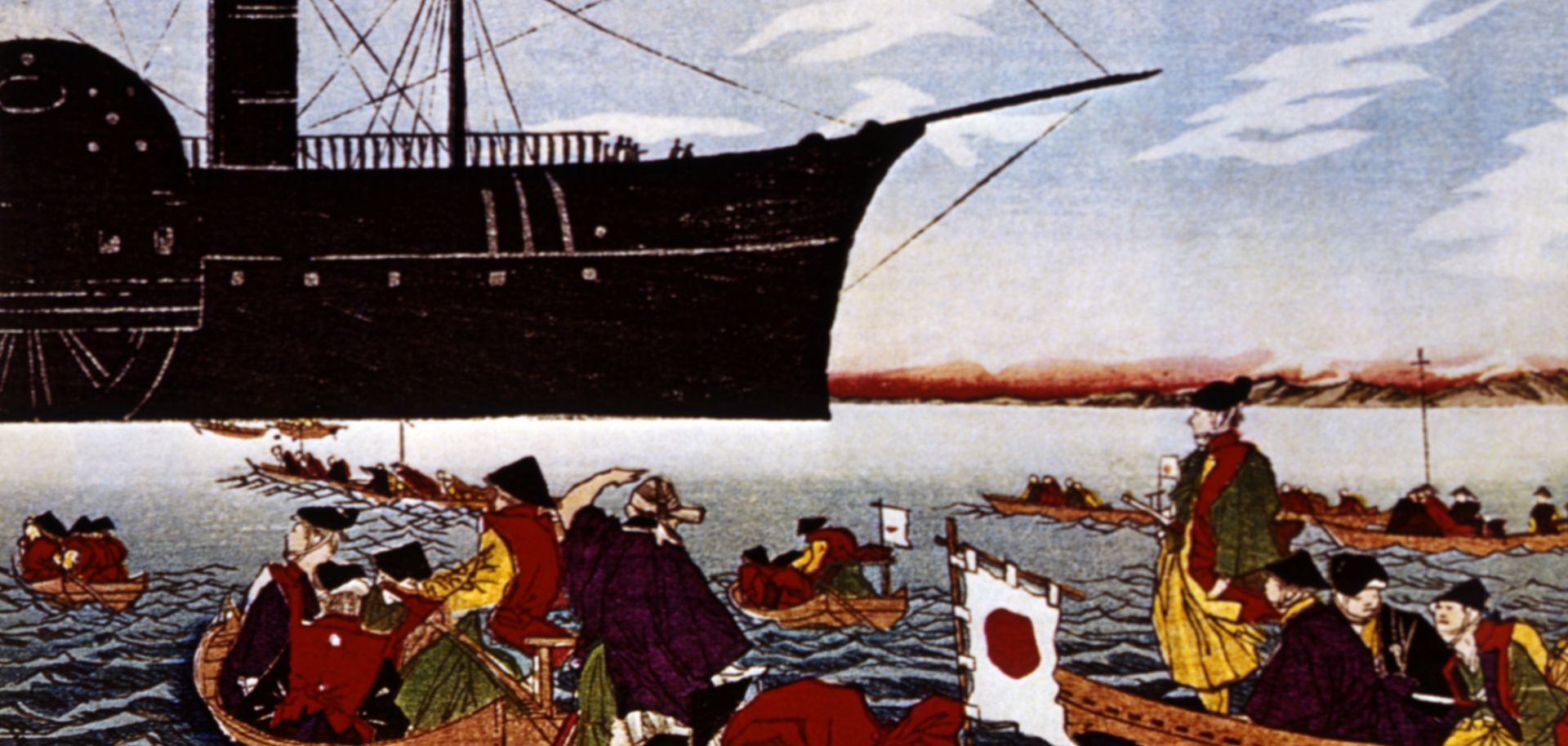COLUMNS
The Contradictory Nature of U.S.-Japan Relations

May 30, 2019 | 05:30 GMT

A print depicting U.S. Commodore Matthew Perry arriving in Japan in 1853. Japan is a critical component of U.S. defense architecture in the Indo-Pacific, but it is also a strategic economic competitor with the United States.
(UNIVERSAL HISTORY ARCHIVE/UIG via Getty Images)
Highlights
- Once again, U.S.-Japanese relations are diverging between strategic cooperation and economic competition — a long established pattern.
- Trade disputes are not uncommon between the two countries: The United States actively challenged Japan's economic might in the midst of the Cold War, despite being dependent on the strategic position of its key Pacific ally.
- The rise of China has brought Japan out of its economic malaise, and Tokyo is rapidly moving away from the postwar prohibitions of the Yoshida Doctrine and Article 9 of the Japanese Constitution.
- Even as the United States and Japan struggle with a trade imbalance, there is a growing alignment of interests and actions when it comes to the strategic question of managing China.
Subscribe Now
SubscribeAlready have an account?
